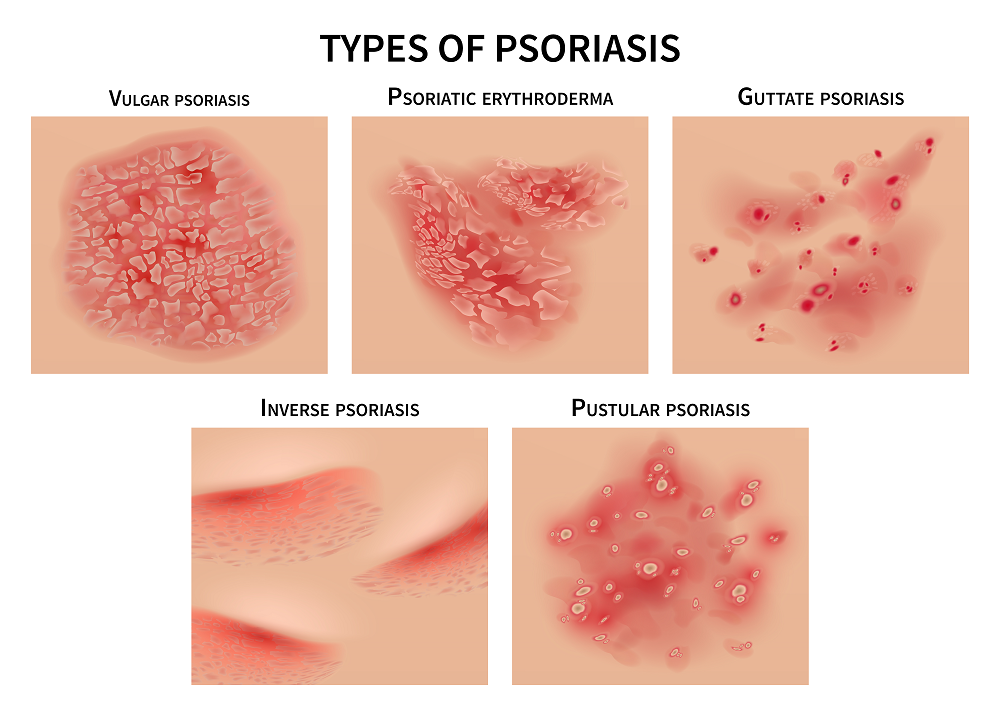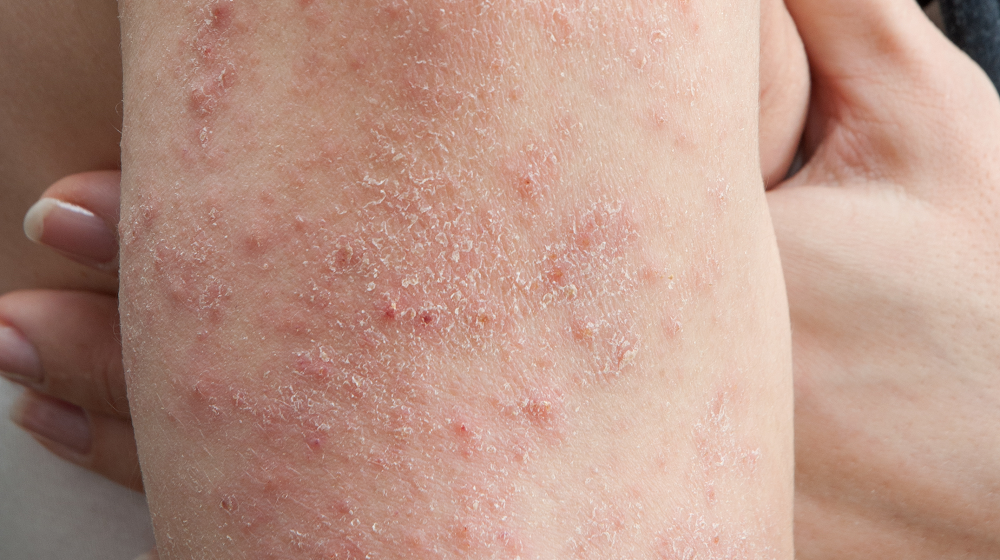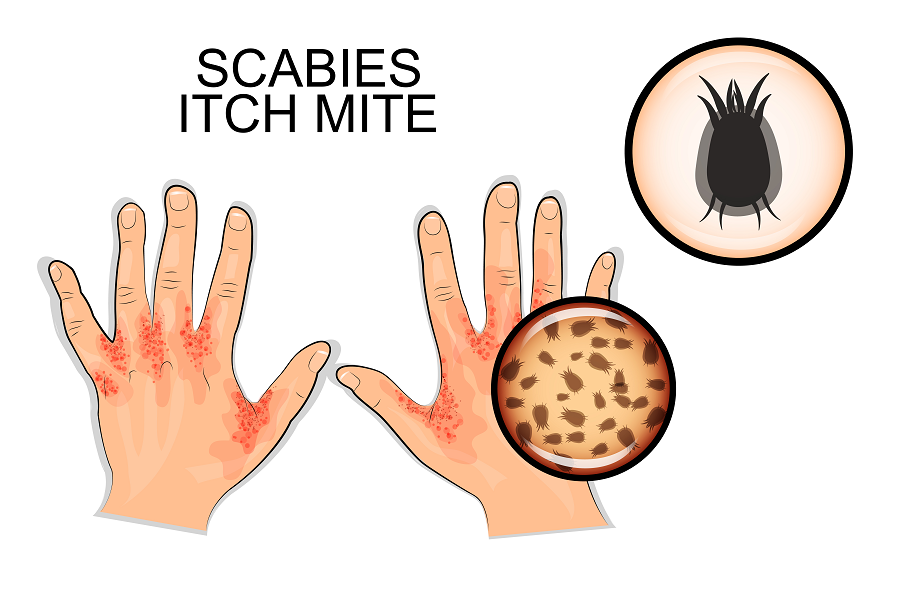Psoriasis is an autoimmune skin condition that causes many sufferers of the condition to hide their skin from the public eye.
Because of the obvious unattractive nature of psoriasis on the skin, many are embarrassed to show it and will try to avoid it being a topic of discussion.
This condition affects about 8 million people in the United States. It affects about 2 to 3 percent of people worldwide.
It’s time to learn more about psoriasis.
What is Psoriasis?
Psoriasis is a skin disorder that leads to redness, bumps, itching, and patchiness of the skin, most notably on the elbows, knees, scalp, and back.
This scaly, white patchy skin condition typically appears in early adulthood, though it can occur at earlier ages.
Luckily, for most individuals who live with psoriasis, only a few small areas of the body are affected. Yet, for those that experience the more severe cases of psoriasis, the entire body can become involved.
Unlike some other skin conditions such as skin infections, psoriasis is not a contagious illness. So, others around you have no need to fear the condition spreading to them.
Psoriasis, however, does have the risk of passing on to blood relatives.
The good news is that psoriasis can be treated.
There are multiple different types of psoriasis, and it’s good to learn about these in more detail.
Types of Psoriasis
Although this common skin condition is typically thought of as one localized condition, several various types of psoriasis do occur.
In fact, there are a total of seven (7) different types of this surface-level skin condition, and all come with their own unique signs and symptoms. These are some of the types of psoriasis:
1. Plaque Psoriasis – The most common type of psoriasis. Going by its name, this type of condition results in red, dry, scaly patches known as “plaques.”
2. Nail Psoriasis – This type of psoriasis occurs on the fingernails or toenails and results in discoloration and abnormal growth.
3. Psoriatic Arthritis – While many forget that this is a type of psoriasis, psoriatic arthritis is a condition whereby the joints become sore and swollen, ultimately causing progressive joint damage in the most severe cases.
4. Pustular Psoriasis – A rare form of psoriasis that results in pus-filled “bumps” atop the skin.
5. Guttate psoriasis – The most common type of psoriasis in children and young adults. This type is typically triggered by a streptococcus infection of the throat.
6. Inverse Psoriasis – Most commonly found in the areas of the groin as well as the buttocks and breasts. It occurs where skin is on skin, as in body fold regions such as the axilla.
7. Erythrodermic Psoriasis – The rarest type of psoriasis, but arguably the most severe in that it can occur all over the body resulting in a rapidly spreading rash.
These are conditions that warrant evaluation and treatment by a physician as soon as possible.
Common Signs and Symptoms of Psoriasis
The signs and symptoms of psoriasis widely vary across populations. Nonetheless, because it’s a condition of the surface of the skin, it’s easy to know what it is when you see it.
Since it occurs on the skin and is inflammatory, some symptoms are very common among sufferers.
The most common characteristic of psoriasis is the definitive plaque-like patches on the skin. In fact, approx. 85% of those that live with psoriasis experience the plaque-like patches that psoriasis cause.
For those that live with varying degrees of psoriasis, here are some of the most common and prevailing signs and symptoms:
– Plaque-like patches covering the skin
– Scale-like spots
– Redness
– Itchiness
– Skin soreness
– Burning sensation throughout troubled spots
– Stiff joints around troubled areas
Now, let’s look into the specific causes of psoriasis.
What Causes Psoriasis?
Like many bodily conditions and diseases, psoriasis is thought to be an autoimmune disorder. In other words, those that suffer from psoriasis have a condition where their body’s own immune system is attacking itself, leading to all of the signs and symptoms seen in psoriasis.
In scientific terms, psoriasis is caused by an immune system trigger that causes the skin cells to regenerate at rapid rates, faster than normal.
The resulting “plaque spots” on the skin are the endpoint of the autoimmune process.
While it’s yet to be determined the exact reason why this immune system malfunction occurs, it’s theorized that it’s due to both genetics and lifestyle factors such as diet and bacterial exposure.
There is also reason to believe that stress can lead to flare-ups.
Things that are known to trigger psoriasis flare-ups are:
– Smoking, Drinking
– Poor Diet
– Certain Medications
– Environmental Stress
– Sweat
– Strep Throat
– Skin Injuries (cuts, scrapes).
How to Treat Psoriasis
The good news is that psoriasis is largely treatable. In fact, for those that currently suffer from severe flare-ups, there are ways to mitigate and reduce the duration of each flare-up and perhaps even prevent them from occurring.
The first thing is to visit your dermatologist, who will likely prescribe a topical treatment such as steroid creams and moisturizers.
Certain other medications such as Humira and Remicade, which inhibit the body’s immune response, can also be considered in the treatment of severe psoriasis. Depending on the severity, they may even suggest an elimination diet of sorts.
Additional alternative treatments include light therapies and holistic approaches. It’s also good to adapt simple lifestyle changes like consuming more water, eating healthier, losing weight, and eliminating bad habits like smoking and drinking too much.
Final Thoughts
While there is not yet a cure for the illness, psoriasis is a skin condition that can be treated to greatly reduce symptoms and side effects, even in the most severe of cases.
Psoriasis is and can be a complex condition that shows itself in various forms and fashions. Because of this, it is highly recommended to consult with a dermatologist.
For those that live with psoriasis, there are treatments that mitigate the severity. Lifestyle changes can also be made to greater reduce its impact on your skin and overall health.



